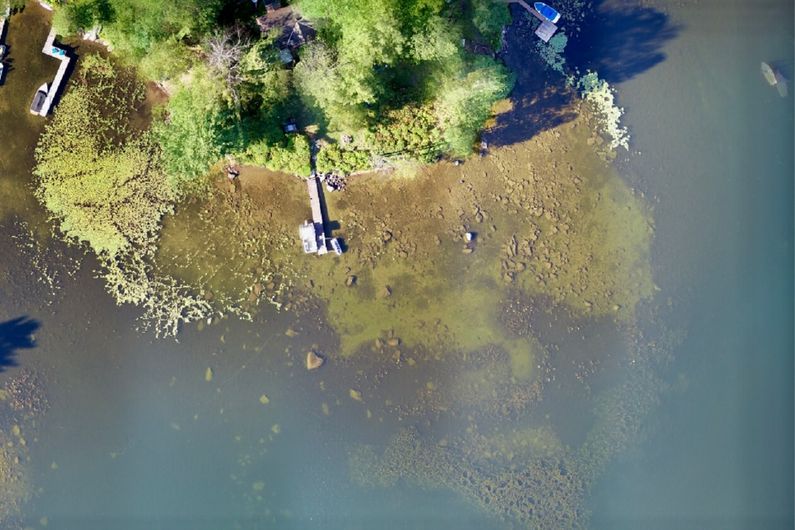Aquatic grasslands are in decline, but they can be saved
- UdeMNouvelles
02/14/2023
- Béatrice St-Cyr-Leroux
Lake wetlands are suffering worldwide, but a study by two biologists at UdeM shows that restoration is possible.
Little-known habitats, very high value
Since aquatic grasslands lie below the surface, they have been less studied: they are hard to measure and detect using aerial or satellite imagery. Moreover, aquatic grasslands are not included in the classic classifications of wetlands. Yet aquatic grasslands have a very high ecological, cultural and economic value, according to doctoral student Morgan Botrel, lead author on the study.
Aquatic grasslands slow down the flow of water, which in turn increases the sedimentation of particles and promotes clean water. In this way, they help to purify the water, in particular by filtering out certain pollutants such as agricultural fertilizers and waste water. In another study, the researchers found that an aquatic plant bed in Lac Saint-Pierre, in the St. Lawrence River, could filter out 47 to 87 per cent of nitrogen in the water - the equivalent of treating the pollution of a place the size of Quebec City.
According to Botrel, “because of their effect on water flow and certain characteristics of the plants themselves, aquatic grasslands improve water quality: they regulate nutrient cycling and they could even reduce emissions of greenhouse gases such as methane.”
Aquatic grasslands lying completely below the surface keep the water clean, and play a vital role for aquatic biodiversity. They are a key habitat and food source for a variety of species.
More frequent increases since the '80s
On the plus side, Morgan Botrel and Roxane Maranger note that increases in the quantities of submerged plants have been more frequent since the 1980s.
“This is mainly due to the restoration of water bodies and the reversal of eutrophication," said Botrel. "These gains are particularly important in Europe where there is real political will to improve water quality through the European Union's Water Framework Directive. In North America, the situation is more complex and the arrival of exotic species can both improve the situation or bring on declines."
The researchers insist that improving water quality and limiting nutrient inputs should be a priority for preservating and restorating these wetlands.
“Excessive nutrients and suspended particles block the access of plants to light,” said Botrel. “In addition to nutrient control, strategies can also be adopted to control the food chain and some invasive species that affect water quality. For example, we could consider removing certain fish such as carp that feed at the bottom of the water, disturbing the sediment and, de facto, affecting the transparency of the water.”













